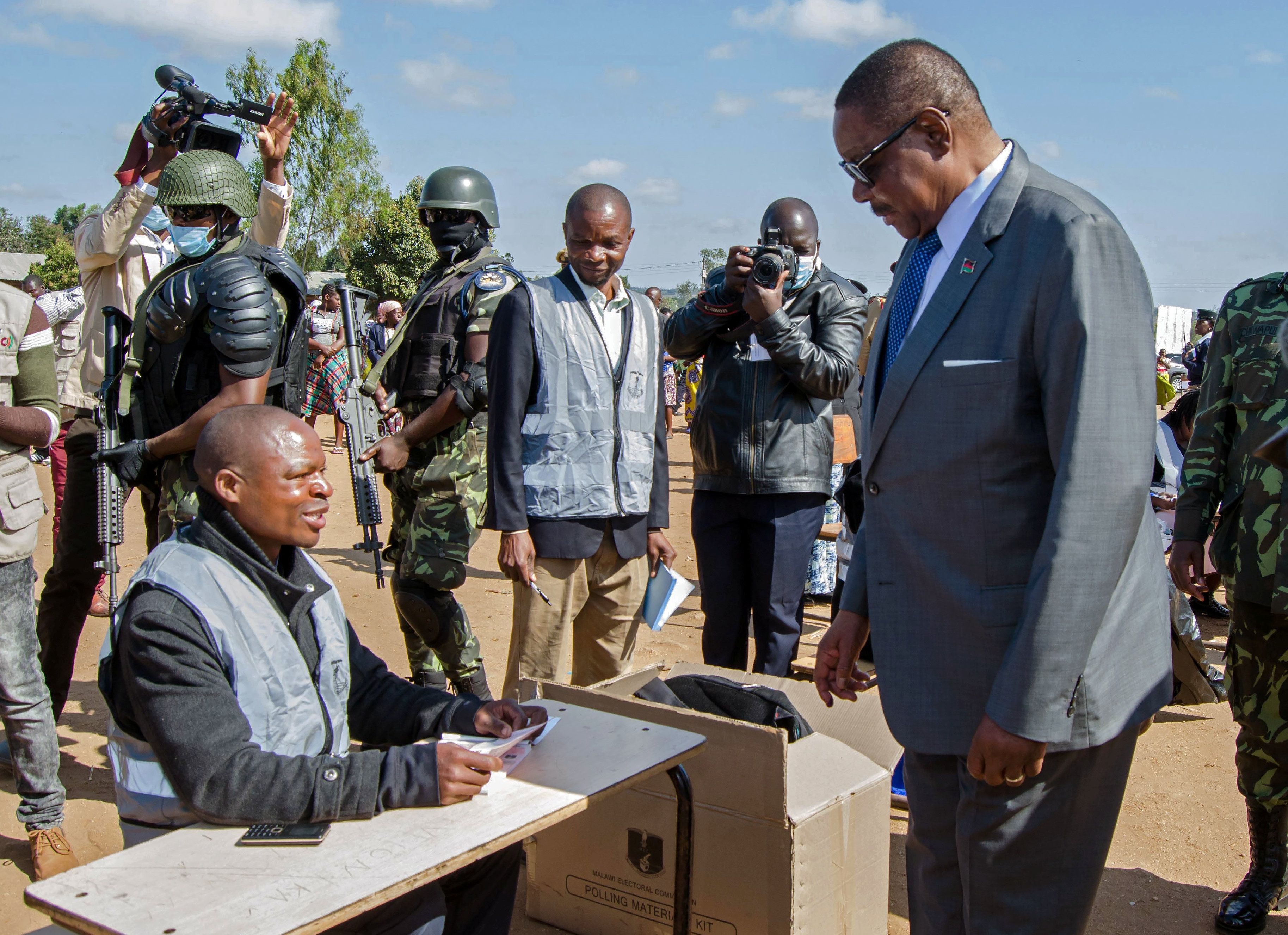June 23, 2020
Malawi's election do-over: Five months after Malawi's constitutional court ruled that widespread irregularities compromised the incumbent President Peter Mutharika's re-election, Malawians participated in a historic rerun on Tuesday. Some 6.6 million people were registered to vote in the much-anticipated contest that will determine whether the 80-year old Mutharika, who has been involved in a string of corruption cases since he took up the post in 2014, can head off his main rival, opposition leader Lazarus Chakwera. Disputes over the first election gave rise to months of unrest as well as clashes between Chakwera's supporters and police.
What's Serbia's president gonna use that power for? In elections largely boycotted by the opposition, president Aleksandar Vučić's party swept up more than 60 percent of seats in Serbia's parliament, giving him further control over a fragile democracy that, rights groups say, has eroded since he came to power in 2017. His opponents said the result was illegitimate, pointing to what they said was biased coverage in state media. Now that Vučić has nearly complete control over the Serbian state, we're watching to see what he does about two important international issues: First, how will he balance his intention of bringing Serbia into the EU while also cultivating ever-closer ties with Russia and China? Second, can he reach a peace deal with Kosovo, the majority-Albanian region of Serbia that suffered a campaign of Serb-directed ethnic cleansing in the late 1990s and then declared independence with US and EU backing in 2008? The EU and US have proposed rival peace plans and Vučić is currently dancing between them. He heads to Washington for talks on the issue this weekend.
Tunisians protest unemployment: Protesters and police have clashed in the southern Tunisian province of Tataouine in recent days, as hundreds flocked to the streets to protest surging unemployment and economic stagnation ten years after the popular revolution in that country gave rise to the broader "Arab Spring." Police fired tear gas and hurled stones at the crowd, but the harsh measures seemed only to embolden protesters who have continued to hit the streets. They say that six years since the first free presidential elections were held, the government has failed to boost economic opportunity for millions of Tunisians, and that a 2017 government pledge to employ thousands of Tunisians to work on oil and development projects was never acted upon. The country's youth unemployment rate of 36 percent is one of the highest in the world.
From Your Site Articles
More For You
An employee works on the beverage production line to meet the Spring Festival market demand at Leyuan Health Technology (Huzhou) Co., Ltd. on January 27, 2026 in Huzhou, Zhejiang Province of China.
Photo by Wang Shucheng/VCG
For China, hitting its annual growth target is as much a political victory as an economic one. It is proof that Beijing can weather slowing global demand, a slumping housing sector, and mounting pressure from Washington.
Most Popular
Two Iranian motorcyclists stop in front of the burned East Tehran General Directorate of Tax Affairs headquarters in Tehran, Iran, on January 21, 2026.
Photo by Morteza Nikoubazl/NurPhoto
30,000: The estimated death toll in Iran during the protests at the start of the year, per local health officials, underscoring the scale of the Islamic Republic’s crackdown on its own citizens.
The World Health Organization (WHO) headquarters is seen in Geneva, Switzerland, January 28, 2025.
REUTERS/Denis Balibouse
Seventy-eight years after helping found the World Health Organization (WHO), the United States has formally withdrawn from the agency, following through on a pledge President Donald Trump made on his first day back in office.
Mastercard Economic Institute's Outlook 2026 explores the forces redefining global business. Tariffs, technology, and transformation define an adaptive economy for the year ahead. Expect moderate growth amid easing inflation, evolving fiscal policies, and rapid AI adoption, driving productivity. Digital transformation for SMEs and shifts in trade and consumer behavior will shape strategies worldwide. Stay ahead with insights to help navigate complexity and seize emerging opportunities. Learn more here.
© 2025 GZERO Media. All Rights Reserved | A Eurasia Group media company.
